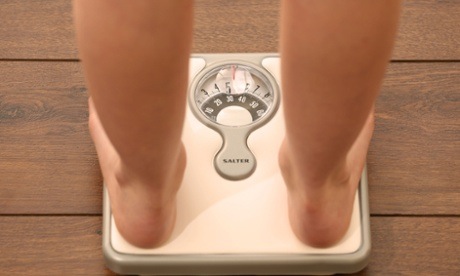
Photograph: Chris Radburn/PA
A tax on sugary drinks would help stem the rise of childhood obesity and save the country billions in medical costs, leading health groups say.
For the first time four health organisations have come together to urge the federal government to launch a national obesity strategy.
Australia has one of the highest rates of obesity in the world, with 63% of adults and one in four children being overweight or obese.
They surveyed 1,016 people and found 85% believed unhealthy eating habits were a serious problem for Australian children.
Half the respondents approved of the government putting a tax on junk food and sugary drinks, similar to the taxes on alcohol and tobacco.
The Consumers Health Forum, Heart Foundation, Obesity Policy Coalition and Public Health Association of Australia believe a sugary drink tax would improve childhood health and help stem the cost of obesity, which is estimated at $56bn a year.
The groups found 77% of respondents supported making the health star system mandatory for packaged food.
Assistant health minister Fiona Nash launched the voluntary star rating labels in December.
Under the system, products are scored between half a star and five stars according to their energy, fat, sugar and salt content.
The health groups also want the federal health minister, Sussan Ley, to tighten junk food marketing regulations.
The Obesity Policy Coalition said the current system in which junk food companies self-regulated marketing to children was a “sham”.
“Children are being bombarded with promotions of unhealthy foods through junior sport, digital apps, social media and in prime time television shows,” said the coalition’s executive manager, Jane Martin.
“This influences what kids eat, what they want to eat and promotes [parent] pester power.”
The Consumers Health Forum said industry and government were essential providers of information about healthy eating and nutrition.
“Improving information availability and not ‘blaming’ consumers for being obese, will create winners all round,” says the forum’s chief executive, Adam Stankevicius.
“We know there is widespread community support for action on unhealthy eating, the costs of implementation are minimal and there are long-term benefits for consumers, government, industry and public health in Australia.”
